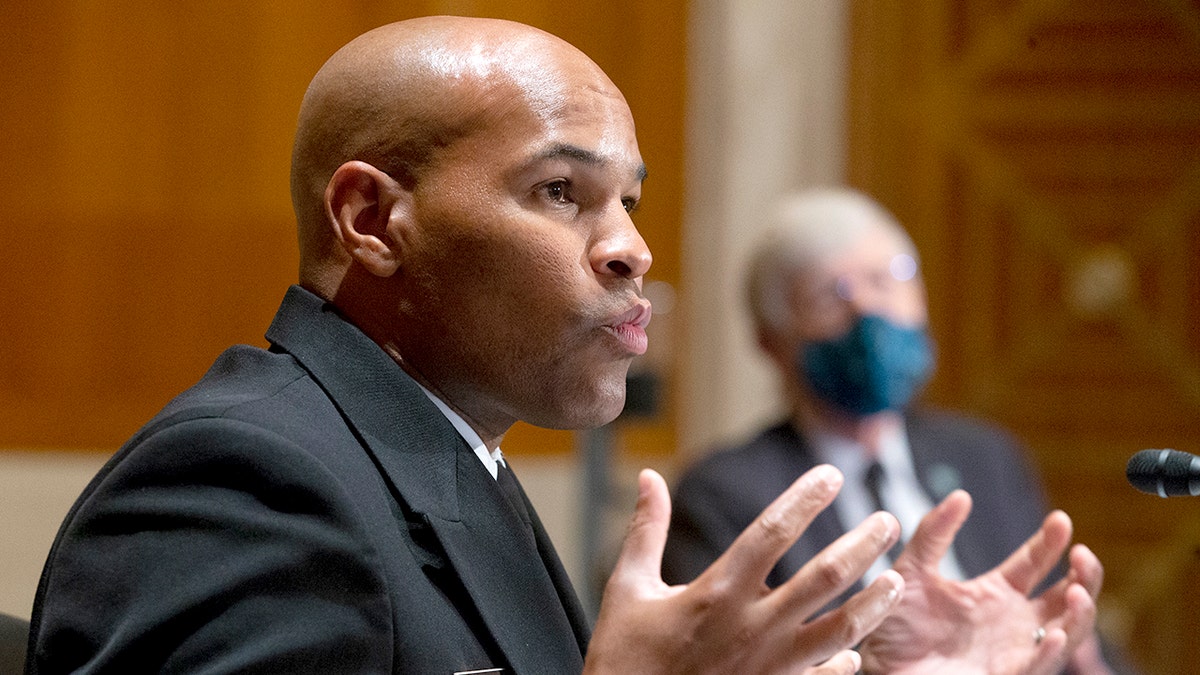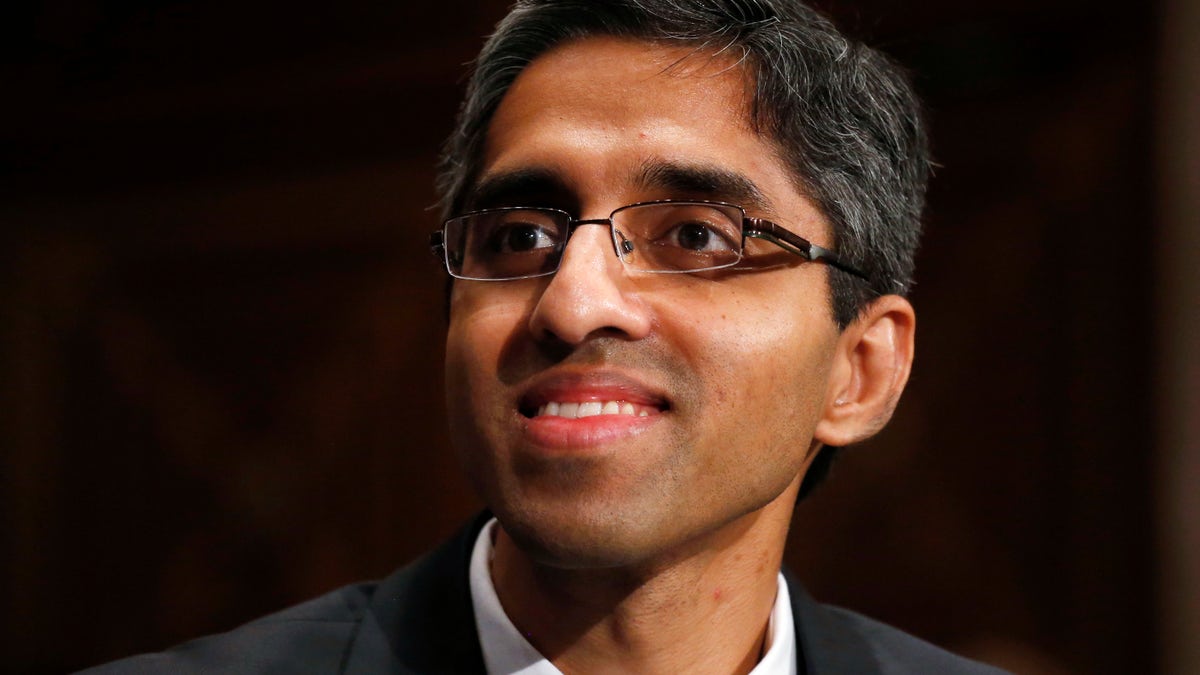Moderna expected to ship coronavirus vaccine
NYU Langone pulmonologist Dr. Qanta Ahmed provides insight on ‘Fox and Friends Weekend.’
The current and potential surgeons general of the United States have assured they see no potential danger posed by the new coronavirus strain reported in Britain.
News of a more virulent strain of COVID-19 found in the U.K. has unsettled world leaders and citizens alike, seeming to arise just as global distribution of the Pfizer vaccine is underway and Moderna’s vaccine not far behind it.
However, both Surgeon General Dr. Jerome Adams and President-elect Biden's pick for the position, Dr. Vivek Murthy, believe that the new strain does not pose a threat as long as Americans continue to observe basic health policies as suggested by the CDC guidelines.

WASHINGTON - SEPTEMBER 9: US Surgeon General Jerome Adams (L) and National Institutes of Health Director Dr. Francis Collins (R) appear before a Senate Health, Education, Labor, and Pensions Committee hearing to discuss vaccines and protecting public health during the coronavirus pandemic on September 9, 2020 in Washington DC. (Photo by Michael Reynolds- Pool/Getty Images)
Adams cautioned that the public should remember that viruses mutate "all the time," but that it does not necessarily make them more dangerous.
SEN. BARRASSO ON CORONAVIRUS RELIEF BILL: 'THIS GETS DONE TODAY'
"We don’t even know if it’s really more contagious yet or not, or if it just happened to be a strain that was involved in a super-spreader event," Adams told "Face the Nation" host Margaret Brennan. "Right now, we have no indications that it is going to hurt our ability to continue vaccinating people or that it is any more dangerous or deadly than the strains that are out there and we currently know about."

FILE - In this Feb. 4, 2014, photo, then U.S. Surgeon General appointee Dr. Vivek Murthy appears on Capitol Hill in Washington. Murthy has been named as co-chair by President-elect Joe Biden to his COVID-19 advisory board. (AP Photo/Charles Dharapak, File)
Murthy echoed the surgeon general’s message and urged Americans to stay calm and continue to follow "the pillars" of preventing COVID transmission: wearing face masks, hand-washing and social distance.
"It’s important to mention a couple of things," Murthy told Chuck Todd during NBC’s "Meet the Press." "While it seems to be more easily transmissible, we do not have evidence, yet, that this is more a deadly virus to an individual who acquires it, there’s no reason to believe the vaccines that have been developed will not be effective against this virus as well."
With both men confident in the vaccine’s effectiveness even against the new strain, the focus will be on ensuring the distribution and uptake of vaccinations across the country.
ISRAEL PM NETANYAHU GETS CORONAVIRUS VACCINATION: 'I BELIEVE IN THIS VACCINE'
Adams addressed concerns with what some have called a slow rollout of the vaccine, with 3 million doses shipped but only around 170,000-270,000 vaccines actually administered.
The surgeon general assured that this was a normal and expected process, with numbers "going up and down" over the coming weeks.
"I absolutely expect the pace to pick up," Adams reiterated. "Something I’ve said all along to people is that this is going to be the most technically, logistically difficult vaccination project of all time."
CLICK HERE TO GET THE FOX NEWS APP
"We started slow, but we’re going to continue to increase. American people should be hopeful about vaccines, but we have to remain vigilant."












































